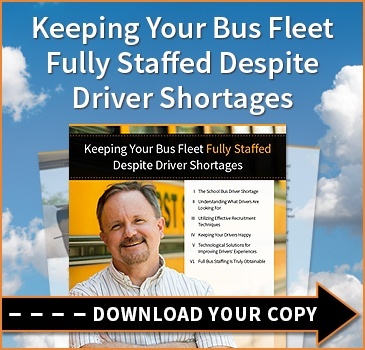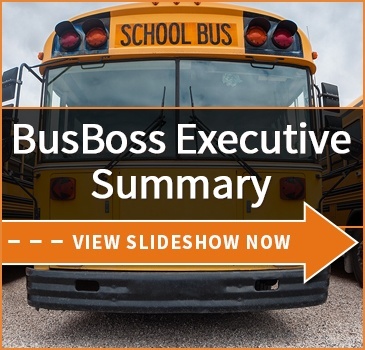Is Route Optimization Now Considered AI Technology?
published on January 31, 2025 by Sonia Mastros
Transportation Management Software, bus scheduling software, school bus scheduling software, school bus management software

AI technology is changing a lot of fields, and that's becoming true of routing software as well. Current Machine Learning systems are able to go well beyond the stock route planning suites, and offer improved optimization and even more options to transportation managers.
So let's talk about what AI is doing for routing systems, and how you'll be able to benefit in years to come.
BusBoss: The Clear Leader In Transportation Routing Software
-
First, a Brief Disclaimer
There's a lot of misinformation about how "smart" current AI is. The reality is, current AI is not smart at all. The AI systems in use are basically really good at taking in vast amounts of data, and then statistically deriving trends from that data. It's all math and algorithms.
There's no actual thinking or awareness involved. A current AI system is fundamentally no "smarter" than a pocket calculator. It just does the math faster. Current AI cannot - and should not - replace human thoughtfulness or creativity. AI suggests options; it's still up to actual brains to apply those suggestions to reality.
How AI Is Improving Route Planning Software
1 - More-informed mapping
The previous generations of route planning systems were running off the same basic algorithms which have powered GPS routing for decades. There's a map, a list of stops, and an algorithm deduces the fastest route between the stops.
Modern AI systems will be able to take in much more robust information sources, to make better maps that more accurately match with reality. For example, they could integrate traffic reports, and automatically route around roads or intersections known to become clogged. Weather is another factor that could potentially be utilized, automatically changing routes to avoid known icy areas, for example.
2 - Better alerts
AI systems will be able to sit 'in between' the driver and transportation staff, triggering alerts automatically if something goes wrong. Current software can do this to a limited degree. For example, if a bus suddenly deviates from its assigned route, even basic software can send an alert to your office.
AI systems can potentially have more autonomy, if allowed. For example, if a bus gets into an accident, an AI system may be able to detect the accident and automatically signal 911 even as it alerts you to the problem, cutting down on response time.
3 - Smarter diagnostics and reporting
AI will also be better at diagnostics. For example, an AI system trained to monitor bus fuel usage would spot very quickly if a particular bus suddenly starts using more fuel than normal. This would indicate a mechanical problem that needs to be investigated. Depending on how much information the AI has access to, it might even be able to suggest possible causes for the fuel consumption increase.
Likewise, its ability to generate reports will be enhanced. The more quality data the AI takes in, the better it will be at producing accurate reports. This could streamline state reporting, as well as making it easier to provide detailed feedback to drivers on their performance.
AI Routing Software: Working Smarter, Not Harder
In short, the true benefit of AI will be its ability to take work off humans' shoulders, while producing highly optimized results. AI will likely never be able to run 100% of your transportation department, but it could become your trusted assistant.
BusBoss is on the forefront of bus routing technology, and we've got some big things in store for 2025! Watch this space more new AI-related announcements.





